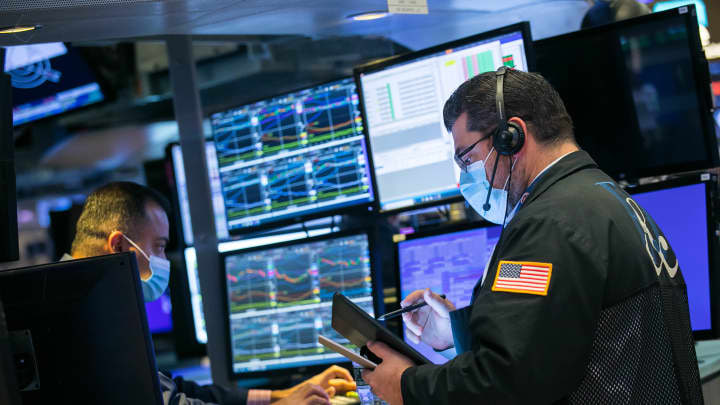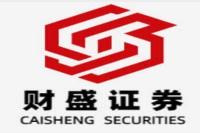EU Eyes Musk's Empire: A Deep Dive into the Potential X Platform Fine
Meta Description: EU investigates potential X platform fine, considering revenue from all Musk companies including SpaceX, Neuralink, xAI & The Boring Company - implications for tech regulation and antitrust.
This isn't your average news blurb, folks. We're diving headfirst into a fascinating, and frankly, wild situation unfolding in the heart of Brussels. The European Union, that bastion of regulation and protector of consumer rights, is flexing its considerable muscle, and Elon Musk’s sprawling business empire is squarely in its sights. The potential fine levied against X (formerly Twitter) isn't just about X's revenue anymore—oh no, it's a whole different ball game. We're talking about a potential reckoning that could pull in revenue from SpaceX, the rocket-launching behemoth; Neuralink, the brain-computer interface company; xAI, Musk's ambitious foray into artificial intelligence; and even The Boring Company, aiming to revolutionize (or at least drastically speed up) underground transportation. Whoa! It's like a regulatory game of Jenga, where pulling out one block (X's revenue) could potentially bring down the entire tower (Musk's entire business empire). This unprecedented move raises significant questions about the scope of EU regulatory powers and the future of tech giants operating across multiple sectors. Think of the ramifications: Could this set a precedent for future regulatory actions against sprawling conglomerates? Will this impact investor confidence in Musk’s companies? What does this mean for the future of innovation? This in-depth analysis will unravel the complexities of this situation, providing expert insights and exploring its potential impact on the global tech landscape. Get ready to buckle up, because this is a rollercoaster ride you won't want to miss! We'll be examining the legal precedents, the potential financial penalties, and the broader implications for the future of tech regulation. Don't just read the headlines; understand the story behind the headlines. Let's get started!
The EU's Expanding Scope: Examining the Revenue Consolidation
The European Union's decision to potentially consider the revenue of all Elon Musk's companies when calculating the fine against X platform marks a significant shift in regulatory approach. This isn't just about fining a single entity; it’s about potentially holding a corporate empire accountable for the actions of one of its components, a precedent-setting move with far-reaching implications. This strategy, if successful, could signal a new era of stricter oversight for mega-corporations operating across diverse sectors.
The EU's rationale, likely stemming from concerns about potential anti-competitive practices or breaches of data protection regulations, is to ensure a truly comprehensive assessment of X's financial capacity. By considering the consolidated revenue of Musk's diverse enterprises, the EU aims to impose a penalty that is both proportionate to the alleged infractions and impactful enough to deter future misconduct. This approach, however, raises complex legal and economic questions. Does it set a dangerous precedent for future regulatory actions? Could it stifle innovation and discourage diversification by companies? The answers are far from clear-cut.
This aggressive approach suggests a growing willingness by regulators to tackle the complexities of modern, multi-faceted corporations. It’s a direct challenge to the traditional approach, where penalties are primarily calculated based on the revenue of the specific entity facing the regulatory scrutiny.
This isn't just academic speculation; this is about real, potentially massive financial consequences for Musk and his companies. The implications ripple far beyond the immediate financial impact. We're talking about a potential restructuring of corporate strategies, a recalibration of risk assessments, and a potential chilling effect on future innovation, especially in the rapidly evolving tech sector.
Legal Precedents and the Interpretation of EU Regulations
The EU's move to potentially consolidate revenue from Musk's other businesses isn't unprecedented, but it's certainly not common practice. While there isn't a direct, readily available legal precedent that perfectly mirrors this specific situation, similar cases involving holding parent companies accountable for the actions of subsidiaries exist, particularly in areas related to antitrust violations and environmental regulations. The EU's actions are rooted in its interpretation of existing regulations, specifically focusing on the potential for cross-subsidization and the need to ensure a just and effective penalty.
Interpreting EU regulations is a complex legal endeavor, often involving a nuanced understanding of the interplay between different directives and precedents set by the European Court of Justice (ECJ). The precise legal basis for the potential revenue consolidation is crucial. The EU will likely need to demonstrate a clear link between the alleged infractions by X and the financial resources available across Musk’s entire business empire.
The Potential Financial Ramifications: A Multi-Billion Euro Question
Estimating the potential fine is, understandably, tricky. It depends heavily on the nature and severity of any alleged violations, the EU's final assessment of X’s responsibility, and the extent to which they consider consolidated revenue. However, considering the revenue of Musk’s companies—a figure reaching tens of billions of dollars annually—the potential fine could run into the billions of euros. This would be a significant financial blow, even for a billionaire like Elon Musk, and could have a ripple effect across his entire business portfolio. The sheer magnitude of the potential penalty highlights the seriousness with which the EU is taking this matter. It's a powerful message to other tech giants: Compliance with EU regulations is paramount.
The financial ramifications extend beyond the direct penalty. There are potential impacts on investor confidence, stock prices, and the ability of Musk’s companies to secure future funding. The proceedings will be closely watched by financial markets worldwide, influencing investor sentiment and impacting the valuation of not only X but also SpaceX, Neuralink, xAI, and The Boring Company.
The Broader Impact on Tech Regulation and Innovation
This case sets a significant precedent, potentially reshaping the regulatory landscape for multinational tech companies. The EU's approach could inspire similar actions by other regulatory bodies globally, leading to a more stringent regulatory environment for large, diversified corporations. This could impact future investment strategies for tech giants, potentially discouraging aggressive expansion and diversification into multiple sectors.
While stricter regulations can ensure accountability and protect consumers, they also carry the risk of stifling innovation. A overly burdensome regulatory environment could hinder the development of disruptive technologies and limit the potential for future growth. Striking a balance between robust regulation and fostering innovation remains a crucial challenge for policymakers worldwide. This situation serves as a potent reminder of that delicate balancing act.
The EU's approach could also be seen as a reaction to the increasing influence and power of large tech companies. This move reflects a growing global trend toward greater oversight of tech giants and a renewed focus on ensuring fair competition and consumer protection within the digital economy.
Frequently Asked Questions (FAQ)
Q1: What are the specific allegations against X platform that led to this investigation?
A1: The specific allegations haven't been publicly disclosed in detail. However, potential areas of concern may include issues related to data privacy, misinformation, and potentially anti-competitive practices. The investigation is ongoing, and more information will likely emerge throughout the process.
Q2: Could this lead to a breakup of Musk's business empire?
A2: While a complete breakup seems unlikely at this stage, the EU's actions could indirectly pressure Musk to restructure his companies, or at least more clearly delineate their operations and financial reporting to avoid future consolidated liability.
Q3: How long will this investigation take?
A3: EU investigations can be lengthy, often taking years to complete. The complexity of this case, involving multiple companies and potential cross-border legal issues, suggests that a final resolution may still be some time away.
Q4: What are the potential consequences beyond the financial penalties?
A4: Beyond financial penalties, the EU could impose operational restrictions on X or any of Musk's companies. This might include limitations on data processing, changes to business practices, or even temporary suspensions of services. Reputational damage is also a significant factor.
Q5: Does this set a precedent for other tech companies?
A5: Absolutely. This case sets a significant precedent for how regulators globally may deal with similarly large, diversified tech companies. It signals a potential shift toward a more consolidated approach to assessment of corporate liability.
Q6: What can we expect in the near future concerning this case?
A6: We can expect further investigations, more detailed information about the allegations, and potentially legal challenges from Musk's companies. The process will likely be protracted and involve significant legal maneuvering on both sides.
Conclusion: A Defining Moment for Tech Regulation
The EU’s investigation into X platform and its potential consideration of Musk's consolidated revenue represents a watershed moment in tech regulation. It signals a growing determination by regulatory bodies to hold powerful tech companies accountable for their actions, regardless of their size or the complexity of their corporate structures. While the outcome remains uncertain, this case will undoubtedly shape the future of tech regulation for years to come, influencing how other global regulators approach the oversight of large multinational tech corporations. It's a clear sign that the days of unchecked expansion and potentially questionable practices by tech giants might be numbered. The world watches intently.



